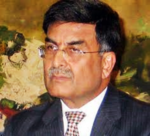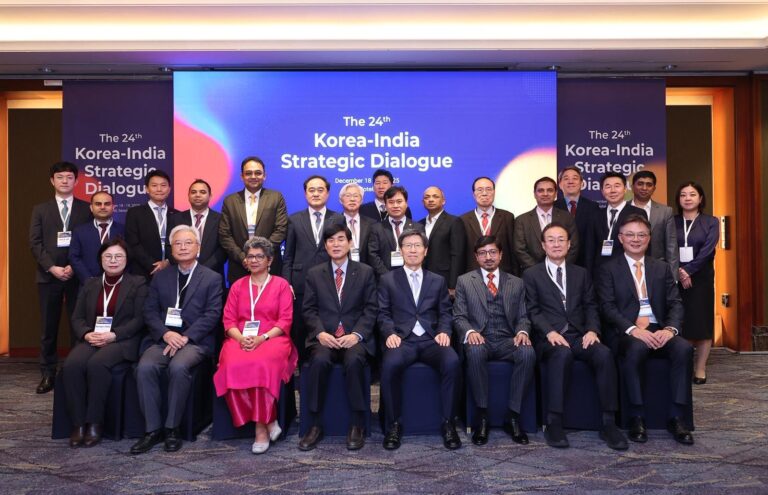A popular remark in Pakistan, epitomizing the predominance of the Army, Islam and the US in the Pakistani polity, describes it as a state run by ‘Allah, America and Army’.
Pakistan-US relations have seen their ups and downs. Lacking strategic congruence, the two countries have gone through phases of collaboration in a transactional relationship, interspersed with periods of neglect/alienation. There were three broad phases of collaboration: during the Cold War, Afghan Jihad and the US War on Terror.
The relationship during the US War on Terror soured seriously 2010 onwards due to growing evidence of Pakistan’s double-dealing on terrorism and continuing to provide sanctuaries and more to the Afghan Taliban, the killing of Osama bin Laden in a US raid in a Pakistani garrison town in 2011 and a NATO attack on two Pakistan army check posts in Pakistan’s tribal belt later that year. A short phase of collaboration followed during the US-Taliban negotiations in the run up to the Doha Agreement of 2020 during President Donald Trump’s first tenure. Unlike the earlier phases, it was not characterised by large flows of US civilian and defence assistance. An initial period of neglect during the Biden administration turned into a sharp downturn when the then Pak Prime Minister Imran Khan alleged a US conspiracy to oust him from power.
There have been growing signs in recent months of the Pakistan Army and the US coming together in yet another transactional phase. Will the Almighty bless it?
Factors Underlying the Latest Transactional Phase
Pakistan was nowhere on Trump’s radar screen either during his election campaign or in the weeks following the commencement of his second term. In early March, in his first address to the Congress, Trump announced that Pakistan had assisted in the arrest of a top terrorist responsible for the bombing outside the Kabul airport in August 2021 that had resulted in the killing of 13 departing US troops and a large number of Afghans. Pak army chief Asim Munir seems to have registered himself in the mind of the US President through this act. The US Centcom commander called Pakistan a ‘phenomenal partner’ in counterterrorism. In the joint statement of the US-Pakistan Counterterrorism dialogue in August 2025, the two sides reaffirmed their shared commitment to combating terrorism and referred, in particular, to the Balochistan Liberation Army, Islamic State-Khorasan and Tehreek-e-Taliban Pakistan.
In August 2025, World Liberty Financial, a finance platform backed by the Trump family, signed a Letter of Intent with the Pakistan Crypto Council to advance blockchain innovation, increasing stablecoin adoption and deepening DeFi integration across Pakistan. The US company delegation that visited Pakistan to sign the deal included Zachary Witkoff, son of Steve Witkoff, the US Special Envoy to the Middle East. This deal gave Pakistan a valuable connection to the White House.
Pakistan was quick to endorse President Trump’s repeated claim that he had stopped a war between India and Pakistan in May this year and nominated him for the Nobel Peace Prize. The President has more than once expressed his appreciation for these actions, mentioning in particular that the Pakistani Field Marshal (Asim Munir) credited him with saving millions of lives.
A US delegation participated in the Pakistan Minerals Investment Forum 2025, paving the way for a critical minerals deal between Pakistan’s Frontier Works Organisation (FWO), an army run engineering corporation and the US company – United Sates Strategic Metals. The first phase of the deal envisages an investment of $500 million by the US company in Pakistan. According to Pak Prime Minister’s Office, the partnership would begin with the export of readily available minerals including antimony, copper, gold, tungsten and rare earths elements from Pakistan, and eventually a specialised refinery would be set up in Pakistan to produce intermediate and finished products dedicated to meeting the US market demand. However, independent analysts pointed out that the agreement was not a binding mining license, but an early stage instrument signalling interest.
On July 30, Trump took to social media to say that the US had concluded a deal with Pakistan to work together on developing Pakistan’s “massive oil reserves” and was in the process of choosing an oil company to lead this partnership. There appears to have been no further progress on this.
After Shehbaz Sharif’s closed door meeting, along with Asim Munir, with President Trump on September 25 at the White House, his office said that the Prime Minister had invited US investment in agriculture, IT, mining and energy sectors. However, in spite of the aforementioned deals, whose potential is examined briefly further down in this essay, the economic relationship between the two countries in not substantive. In the midst of Trump’s tariff blitz, the two sides concluded a trade deal at a relatively lower tariff of 19%. However, their annual bilateral trade is in the range of $7 billion only.
The leading role of the Pak army chief, Asim Munir in the developing contacts between the two sides, and President Trump’s frequent and fawning references to him as a ‘great leader’ and a ‘great guy’, aside from being an acknowledgement of his preeminent position in the Pakistani polity, also suggest that there is a substantive security content of the ongoing discussions. Munir was earlier hosted at a luncheon meeting at the White House by Trump in June. An obvious area of cooperation is counterterrorism in the context of the Af-Pak region. This has been an ongoing collaboration with its ups and downs. President Trump has of late made a strong pitch to get back the strategically located Bagram airfield in Afghanistan – a demand resisted by the Taliban. Pakistan too is reaching a breaking point with the Taliban, inter alia, on the issue of alleged terror attacks from the Afghan soil. The two sides could possibly join hands to exert pressure on the Taliban. There are also possibilities of security cooperation in the context of Iran. Such cooperation could take the form of intelligence sharing, Pakistan permitting the use of its airspace and possibly allowing the use of some of its airfields, as it had done during the War on Terror.
In the midst of such probable scenarios, a security role for Pakistan under the US tutelage in West Asia is gradually coming into focus. Pakistan signed a Strategic Mutual Defence Agreement with Saudi Arabia recently. This would have passed off as formalisation of the long standing defence ties between the two sides, but for inclusion in it of a clause that any aggression against either country shall be considered as an aggression against both and the subsequent, barely concealed, references from both sides to a possible Pakistani nuclear umbrella for Saudi Arabia. The timing of the agreement was seen as linked to the Israeli attack against the Hamas leadership in Qatar, which called into question the US security umbrella that the Arab monarchies have counted on. However, no official US reaction to this agreement hinting at a nuclear umbrella in a key region – in the normal course a sensitive issue warranting a US comment- raises the possibility that it had the US nod.
The US expectation of a Pakistani role -both diplomatic and security- in the context of President Trump’s 20-point peace plan for Gaza in now quite evident. While announcing the plan after his meeting with Prime Minister Netanyahu on September 30, Trump, inter alia, referred to “the Prime Minister and Field Marshal of Pakistan”, who he said were with the US from the beginning of discussions on the issue and backed his plan “100 percent”. The Americans would expect Pakistan, with its large army, to make a key contribution to the International Stabilization Force envisaged in Trump’s Gaza plan. The Pakistani Deputy Prime Minister and Foreign Minister, Ishaq Dar, has said that the government would make a decision on this aspect.
Further, the Americans have often leveraged India-Pakistan issues to serve their own interests in the region. Therefore, they may also see their current bonhomie with Pakistan, inter alia, as an instrument to pressurise India in relation to their demands on trade and Russian oil purchases etc.
Pitfalls for the Latest Transactional Phase
As during the previous transactional phases, the road for the latest phase will not be smooth.
The first threat is that of overpromise in the economic areas that have served as the launch pad for the ongoing bonhomie. Alarm bells have been rung in Pakistan about possible frauds, scams and market manipulation in the cryptocurrency area without effective regulation. Doubts persist about Pakistan’s critical mineral reserves, with some observers maintaining that the minerals industry in Pakistan is nascent, all projects are greenfield and it will take time to verify the reserves. Mineral projects are typically long term ventures and require perseverance and patience. Pakistan’s critical minerals potential is said to lie in Balochistan, Khyber-Pakhtunkhwa and ‘Gilgit-Baltistan’. Difficult terrain in these areas and Pakistan’s fraught law and order situation would be two major hurdles. Similarly, Pakistan’s proven oil and gas reserves fall far short of being characterised as “massive”. Prospection for new reserves and their development would face all the aforementioned problems in the case of critical minerals.
The Second threat is of over-expectation on both sides. The bonhomie so far seems to be based on some general assurances. Will it pass the test of being translated into concrete actions? Thus, there is already opposition in Pakistan’s political and religious circles to Trump’s Gaza peace plan. Deputy Prime Minister and Foreign Minister Ishaq Dar has said that the plan made public by Trump is not in every respect the document that Arab and Muslim countries sent to the Americans and Pakistan would go by the latter document. Deployment of Pakistani troops as part of the proposed International Stabilisation Force in Gaza in the absence of respect for the rights of Palestinians will also be highly controversial within Pakistan, as would be a possible US demand upon Pakistan to join the Abraham accords. The US-Pakistan partnership will also have to pass the test of Pakistani expectations from it, which in the past have taken the form of an insatiable appetite for financial and military assistance. The Pakistani establishment was left bitter at the end of each earlier phase of collaboration as their expectations of aid and unflinching support against India were not met.
Third, in going along with the US demands, especially in relation to the security architecture in West Asia, Pakistan would risk getting caught in the quagmire of the region at a time when it faces serious security challenges of its own. As in the past, Pakistan is likely to be caught between the interests of its establishment, which would be keen to please the Americans at all costs to shore up their position, and the interests of the country and its people.
Fourth, Pakistan will have a hard task balancing its cosying up to the Trump administration with its China linkages that have significantly deepened and widened over the last two decades. Even in the highly unlikely event of the Americans resuming the sort of relationship that they had with Pakistan at the initial stages of the Cold War, it would be extremely difficult for Pakistan to loosen the Chinese grip, especially in view of over 80% of their weapon supplies coming from China and the close interoperability between the armed forces of the two countries developed over the years. Besides, there are now close linkages between Pakistan and China in several other areas.
What should India watch for
All the earlier phases of Pakistan-US collaboration ended badly, with adverse consequences for the two countries and beyond. Just to take an example, their policies during the Afghan Jihad unleashed the most retrograde religious zealots, who have continued to haunt the region, the international community and have now come home to roost. The current phase is unlikely to meet any different fate. However, till it lasts, India, which has dealt with such phases in the past, will have to keep a close eye on it. Some areas of concern to India would be:
First, resumption of large scale financial and/or military assistance by the US to Pakistan.
Second, any enhanced role for Pakistan in the security architecture of West Asia – India’s extended neighbourhood and an area of vital interest to it with a large Indian diaspora – would also be a matter of concern.
Finally, whenever Pakistan has had a stable equation with its key international partners, notably the US, in the past, it has felt emboldened to be more adventurous towards India. India will, therefore, have to keep its guard up against any adventurous actions by Pakistan.
The previous issue of Strategic Implications of China-Pakistan Axis are available here: LINK
























